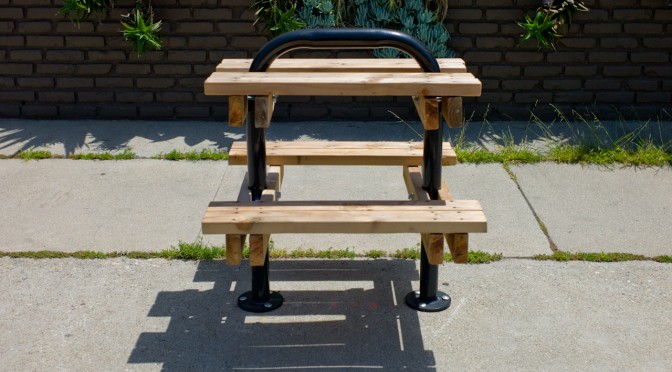Julian: Literally? I spent the week in the model shop doing three things, sometimes at the same time. First, getting ahead of myself and making a third edition of Ear Freshener. That’s right. A third edition. I think I’m deferring/procrastinating doing the sound design until I can find a proper sound designer to help out. What I’m thinking now is to add multiple tracks because the layering and transitions between one sound and the “next higher up” sound might be more effective and less rocky if you have two sound sources at once. That’s the thinking. Best test I think is to build the hardware.
Otherwise, sculpting the framework for a design workshop next week with the Gear team. I’m actually quite excited by the prospect of working together with a team that knows how to do production properly. And swirling around the design of design workshops is the prospect of taking some of these templates for creating new things and working them in other contexts to test the way they work. I mean — they work quite well in the studio, but we’re used to them, understand their rules and the general guidance around how they are wielded. It’ll take several runs to refine them for consumer use.
And I’m working more diligently on Nostalgia, a little prospect of a just-for-me iPhone app, which means a ridiculous amount of time relearning how to get my head in a place to program the computer to make it do things.
Fabien: I started the week giving a 1-day seminar at BDigital on the materialization of value from network data. With a group of participants mainly made of engineers, I first launched into my spiel about a ‘new world of data’ and the implications of this evolution. I particularly stressed my discourse on the necessary skills necessary on projects aiming at extracting information from large datasets and present something of use to non-data experts (i.e. a definition of a ‘data scientist’). I like use Ben Fry’s dissertation Computational Information design (acquire, parse, filter, mine, represent, refine, interact) to lead the audience through various examples of each skill. Then I illustrated the mulch-disciplinary process we employ at the lab to transform data into sketches, prototypes, insights, indicators or evidences. This quote from Dan Hill in a recent interview summarizes quite well the state of our practices:
The basic principle is that all urban problems today are multidisciplinary – […] so no one discipline can solve anything meaningful by themselves, nor can one discipline ‘lead’. So the basics of collaboration – respect, openness, listening, sketching in an ‘open’ fashion, pushing back on ideas but not blocking them, constantly learning – are absolutely paramount.
Consequently, the tools we employ and build embrace this evolution. I find this a rather good introduction to Quadrigram with which we want stakeholders to build feedback loops where they can actually figure something out collaboratively (e.g. find answers and ask new questions). In the seminar I highlighted this important shift that consists in manipulating data in real-time. The second part of the seminar was dedicated to hands-on activities focused in the design of urban services, their evaluations and their implications. Thanks to Marc Pous for the invitation!
This week I also gave an interview to Mosaic in which I discuss about personal heroes, curiosity, the lab, network data, Quadrigram, linking these elements into what I hope is a coherent whole. Thanks to Zzzinc for the inspiring questions!
The rest of the week was filled with meetings and clean up tasks to get Quadrigram ready for its launch. More on that next week.
Nicolas: Last week was a mix of teaching (innovation and foresight in Annecy on Thursday, creative approaches at EPFL on Wednesday), lecturing (about the evolution of space/level design in video games in Geneva on Tuesday) and participating in a panel about User Experience approaches in Lausanne. I also spent some time writing the game controller book, after a good meeting with our editor in Lyon, France last Friday. And oh, one last bit, there’s a new game controller exhibit that we’re working on… with a specific focus on odd and peculiar controllers that reveal various insights about the evolution of these devices, as well as game culture.
